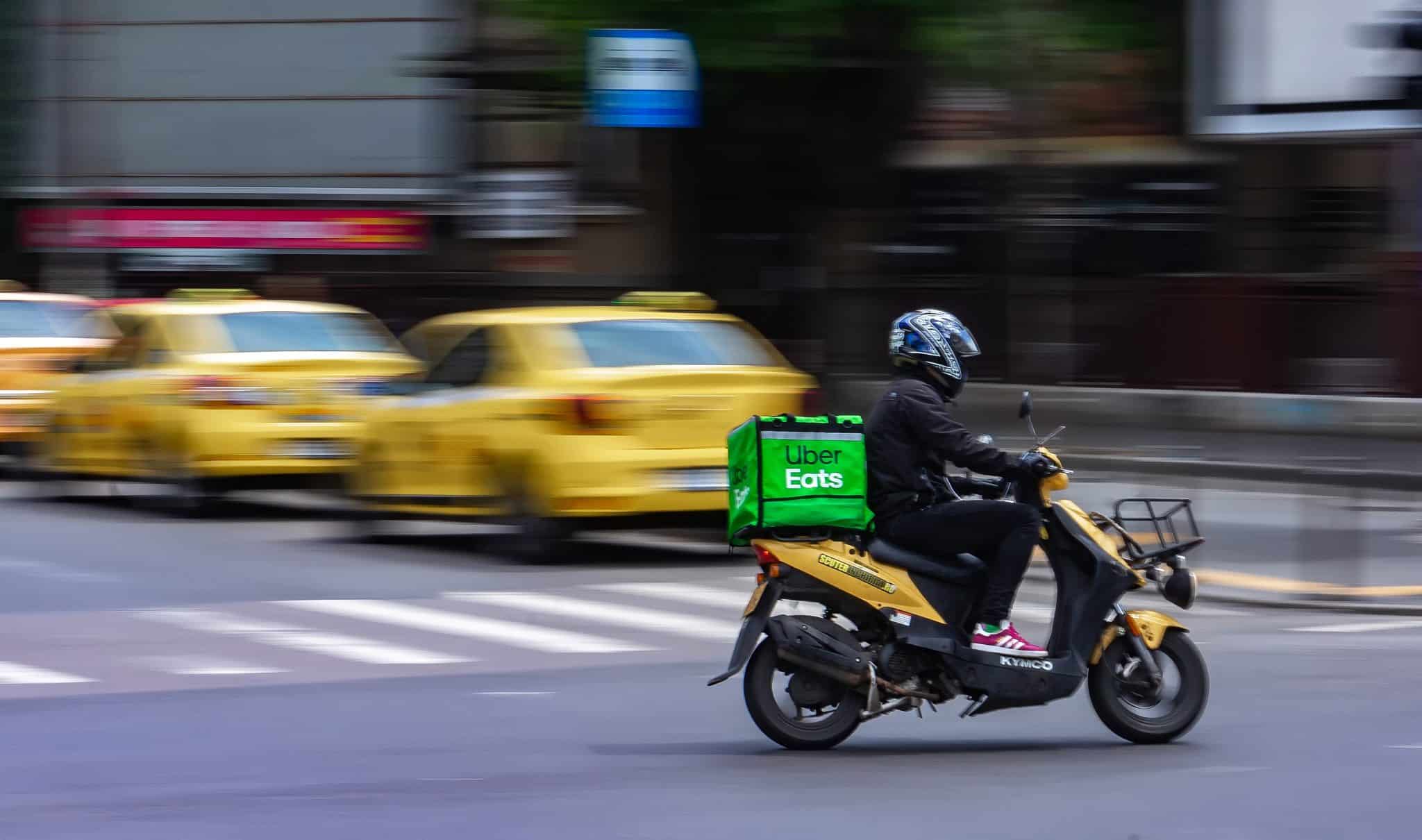Deliveroo, Just Eat and Uber Eats will step up remote biometric verification for their delivery riders in response to concerns raised over illegal workers.
The food delivery companies are the three largest operating in the UK and have been previously flagged by authorities over their rider verification processes.
The latest announcement of increased face verification checks from the companies comes after allegations that migrants staying in government asylum hotels have been working for the apps.
For the first 12 months of being in the UK asylum seekers are forbidden to work or until their asylum application is approved.
The minister for border security and asylum Angela Eagle said she welcomed Deliveroo, Just Eat and Uber Eat’s pledge to increase facial verification checks following a roundtable discussion. “We will keep a close eye on their progress and continue discussions,” she said (via BBC).
Deliveroo said it would increase face biometrics checks to a daily schedule. Just Eat will increase such checks from monthly to daily. Uber Eats said it will “continue to invest in industry-leading tools to detect illegal work and remove fraudulent accounts.”
The government pointed to “illicit account sharing” for illegal working on the apps, while The Sun newspaper reported migrants were renting other people’s Deliveroo and Just Eat delivery accounts via social media. The newspaper said it found legal riders sub-letting out their accounts.
Last week Conservative MP and shadow home secretary Chris Philp posted a video claiming to have found people working for the food delivery apps illegally during an “unannounced visit” to an asylum hotel. The video supposedly shows Just Eat and Deliveroo bikes outside an asylum hotel.
In 2023, the then-Conservative government minister for immigration Robert Jenrick warned the food delivery companies to tighten their rider verification processes. Identity verification company ComplyCube mentioned the concerns as it integrated with the UK’s Driver and Vehicle Licensing Agency (DVLA) to improve the security and accuracy of identity verification.
Face verification checks are not the only problem for the food delivery apps. Uber Eats previously had to contend legal claims brought by delivery driver Edrissa Manjang who argued he was kicked off the ride-sharing app as a result of a discriminatory face biometric system.
The app removed him in April 2021 after he was unable to complete several biometric checks. Uber Eats claimed the plaintiff shared his account with others on multiple occasions, which violates its rules. But Manjang, who is of African descent, claimed the app’s face biometric ID checks resulted in “continuous mismatches,” and accused Uber Eats of using a racially-biased algorithm.
Article Topics
biometrics | face biometrics | facial verification | fraud prevention | identity verification | remote verification


